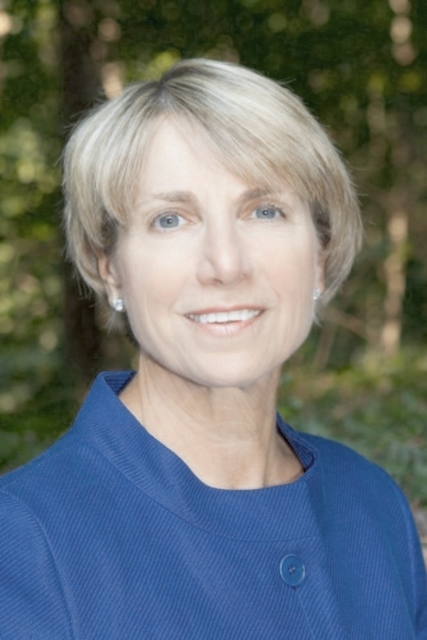HAMLET — Richmond County Schools Superintendent Dr. Cindy Goodman, responding to news of charter school selecting sites in Wadesboro and Monroe, said while some charter schools are successful most of them are failing, yet continue to divert funding from traditional public schools.
“The (charter schools) concept began as an idea that public school money could be used to start a sort of incubator school, to try innovative concepts and ideas that might be more difficult to try in a public school district,” she said Friday. “Some independent group could use public funding to try an innovative idea. They evolved to people wanting to run parallel schools.
“They, unfortunately, haven’t been very successful,” Goodman continued. “They’ve had mixed results: some have been successful, some have not. Not surprisingly, their success runs right along income levels. They have their challenges, just like traditional public schools have challenges.”
Former state senator Eddie Goodall, an advocate for charter schools in North Carolina, told the Anson Record last week that he and a team have been working to complete the application for a charter school in Wadesboro by the state deadline.
Asked what a successful relationship between a traditional public school district and a charter school might look like, Goodman said funding would likely be a point of contention but stopped short of ruling out the possibility.
“I think any time, obviously funding is always a finite number, and any time there’s a perception that anyone gets more than their fair share or less than their fair share, it sets up an ‘us against them’ mentality,” she explained. “The original concept, again, is an incubator-type school, to come up with innovative ideas that can be successful. If I see a charter school that is successfully educating the most challenging groups, I want to find out what they’re doing and try to replicate it in our schools.”
The problem, she added, is that in North Carolina, charter schools are not demonstrating such success.
“Unfortunately, they’re having even fewer successes than we are,” she said. “Statewide, I think there are more failing charter schools than there are failing traditional public schools. They have to take the same assessments we do. They are failing schools. Failing charter schools.”
The North Carolina Association of Educators endorsed Goodman’s husband, Rep. Ron Goodman, Wednesday, as a “pro-education candidate.”
“He sent it to me,” she said. “I was not one bit surprised. I would have been extremely surprised and sorely disappointed had he not been (endorsed.) He has to live with me, so he is an advocate for public schools. I don’t think Ken makes any apologies about being pro-ed.”
Asked for specific reasons she believes her husband received the NCAE endorsement, Goodman said he has consistently advocated for teachers, students and the traditional public education system.
“He believes in getting more money for teachers, more money in our classrooms,” she said. “Like me, he knows public schools are the backbone of our country. They’re the way that children can get out of poverty. They are a way to level the playing field and are the source of the American Dream.”
Charter schools, Goodall said, help bridge a gap between students the state classifies as “at-risk” and the quality education required to meet their needs.
“We have students who are behind there,” he explained. “They have ‘challenged populations’ as we know them. Charter schools really lift the quality of all schools. We want to provide an option for parents to be able to choose what they want.”
Goodman said that despite laws requiring charter schools to accept the same students as traditional public schools, they often find ways of excluding the challenged students they claim they most want to serve.
“We take them all in public schools,” she said. “And that’s the problem when it comes to charter schools, where, by statute, they are supposed to take all students, they often set themselves up in a manner that they don’t make themselves available to all students. A charter school that decides not to provide transportation — they have probably automatically excluded some of the poorest populations.”
“We’ll provide buses, have representation in the community and make sure we are accessible to those needing to get to and from schools,” Goodall told the Record. “We want to reach out to the Hispanic community and others who might not know a lot about charter schools.”
Goodman also expressed concern over an expansion of the types of funding charter schools could be entitled to under proposed legislation.
“Let me give you an example of a funding issue that was shared with me (Thursday) night at the North Carolina School Boards Association regional meeting,” she said. “The example (the association attorney) gave was that if a public school got a grant to, let’s say, teach a German immersion program, that if some of this legislation were to pass, the charter school could ask for their ‘fair share’ of that money even though they had no intention nor capacity to teach German.”
She said that “the blanket is only so big” when it comes to funding for education, and inequities involving fund-sharing with charter schools are potentially problematic.
“If I’ve got a class with 25 kids, and four of them decide to leave to go to a charter school, I lose the funding for those four kids,” Goodman said. “I did not lose the fact that I’ve got to pay for a teacher, I’ve got to pay for a building, I’ve got to pay for the same amount of heat and air. Nothing about what my expenses are has changed. So the charter gets the funding for those kids and my budget is decreased by that amount, and yet I have the same exact expense. So that’s why it hurts traditional public schools more than people might understand at first glance.”
Reach reporter Melonie McLaurin at 910-817-2673 and follow her on Twitter @meloniemclaurin.

